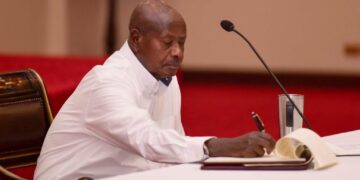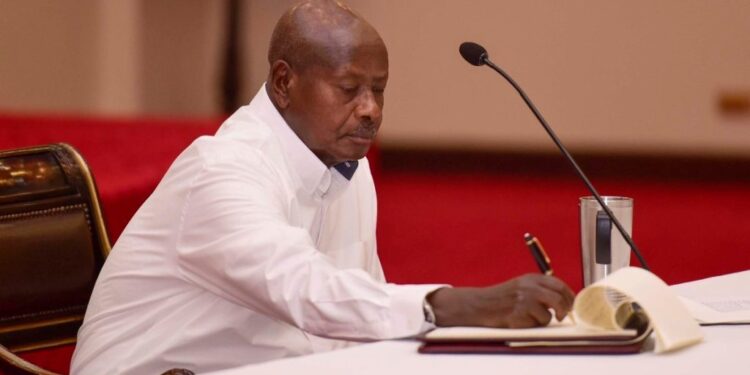President Yoweri Kaguta Museveni has signed an Executive Order on the Issuance of Identification Documents to Ugandan Citizens.
“By virtue of the authority vested in the President by Article 99 (1) and (4) of the Constitution, this Executive Order is made on the 24th of January, 2025,” the President said.
The President further said he has consistently received complaints regarding how people applying for passports are sometimes treated by the concerned authorities.
This mainly relates to how the question of whether or not an applicant is a citizen of Uganda is approached when he or she has applied for a passport.
President Museveni’s directive which reaffirms Ugandan laws follows numerous complaints from Banyarwanda.
They claimed that they were being denied identification documents such as passports and national identity cards, despite being Ugandan citizens of the Banyarwanda tribe. This claim is, however, rejected by authorities at the Ministry of Internal Affairs who insist that those who are denied passports are non-citizens who travel from other countries in attempt to acquire Ugandan passports.
“Why would we deny a Ugandan citizen a passport? Those who are turned down are masqueraders, non-citizens who travel to Uganda in an attempt to acquire a Ugandan passport by hook or crook. This poses security challenges. When we reject their attempts, they take to blackmailing us,” an official at the Passport Control Office told this news site.
Now, in the executive order, President Museveni clarified that the issue of citizenship was resolved under Chapter 3 of the 1995 Constitution which provides for three types of citizenship; citizenship by birth; citizenship by registration and citizenship by naturalization.
“Clearly, the issue is not the law or any gaps in it but how the law is administered with regard to proof of citizenship by applicants for passports or other documents of identity,” he said.
“Therefore, since the challenge is administrative in nature, I hereby direct as follows; Every Ugandan citizen has a right to a passport or other travel document and to enter, leave and return to Uganda,” he ordered.
President Museveni further directed that upon receipt of an application for a passport, officials of the Directorate of the Citizenship and Immigration Control should address themselves to the provisions of section 40 of the Citizenship and Immigration Control Act, Capt. 313 which only requires a person to produce his or her National Identification Number (NIN) and to comply with any other requirements prescribed by the board.
“All administrative processes through which a person might be required to prove citizenship, especially by birth, must uphold the dignity of all persons and no requirement not provided for or contemplated under the law should be applied,” he said.
“Immigration officials should be mindful that citizenship by birth is inherent and not given by the immigration officers and that there must be a presumption of citizenship unless an immigration officer has cogent and reliable evidence that the information submitted by an applicant is not true.”
The President also explained that presently, the law does not accord automatic citizenship to children of citizens by birth and naturalization, saying that a citizen produces a citizen.
“The Minister of Internal Affairs and the Attorney General are directed to immediately have this anomaly addressed.”
He further directed that the Directorate of Citizenship and Immigration Control should not confiscate or cancel National Identity cards issued by NIRA without following due process prescribed by law.
Uganda is a security anchor in the Great Lakes Region. The country which is renowned for its Pan – African outlook hosts over 1.5 million refugees. Uganda’s open-door policy to refugees is commended as the best in the world.









